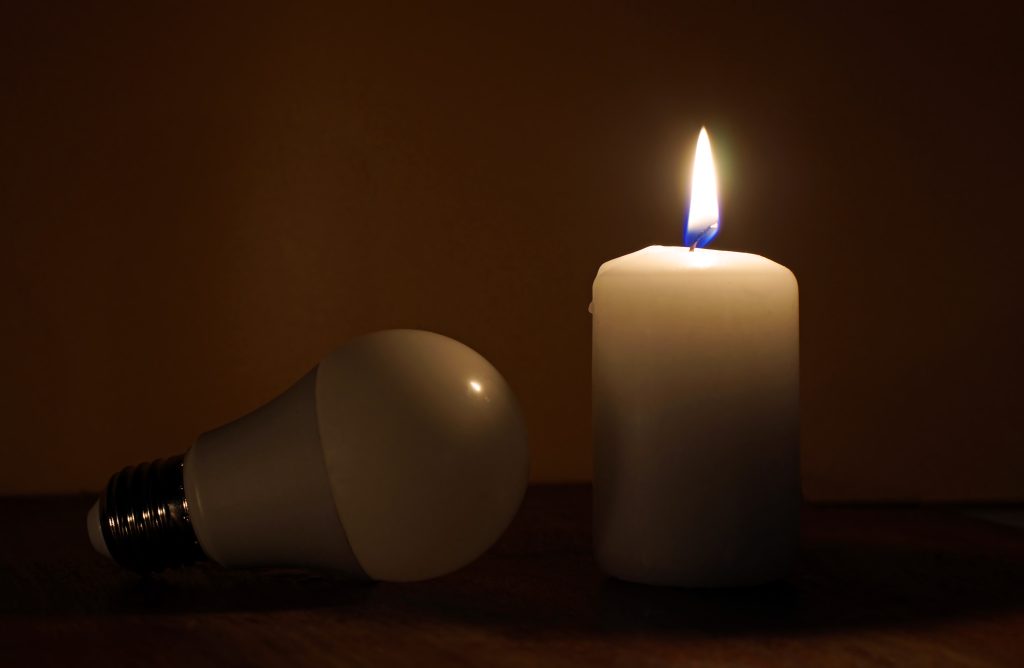Preparing for a power outage is essential for minimizing discomfort and potential risks during such events. An effective preparation strategy includes assembling an emergency kit containing flashlights, extra batteries, a first-aid kit, non-perishable food items, and at least one gallon of water per person daily to last several days. It’s also wise to have a battery-powered or hand-crank radio to stay informed about the outage status and any public safety announcements. Investing in surge protectors and uninterruptible power supplies (UPS) can protect your electronic devices from damage due to sudden power surges when electricity is restored. Additionally, consider the needs of all household members, including pets, and plan for medical needs such as medications that require refrigeration. Keeping a list of emergency contact numbers, including your utility company’s outage hotline, is crucial for quick access to information and reporting outages. By planning and understanding the steps to take before, during, and after a power outage, you can ensure the safety and well-being of your family.

Yes, we typically allow customers to pay their electricity bills using a credit card. This payment method provides convenience and may offer additional benefits, such as rewards points or cash back, depending on your credit card provider. Customers can usually make credit card payments online through Peace Power’s customer portal, over the phone, or by setting up automatic payments. Securely storing your payment information on your account can facilitate faster payments in the future. Always ensure that your credit card information is updated to avoid any disruptions in your electricity service due to payment issues.
Electricity reaches your home through a complex distribution system starting at power plants generating electricity. From there, electricity travels over high-voltage transmission lines that carry it across long distances to substations where the voltage is reduced. These substations then distribute electricity through lower-voltage distribution lines that extend into neighbourhoods and communities. Transformers lower the voltage to a level that can be used in your home, typically stepping it down to the standard household voltage. Finally, the electricity travels through the service line to your home’s electrical panel, from where it is distributed to outlets and appliances. This network ensures that electricity generated miles away lights up your home and powers your devices.
A brownout is a temporary reduction in voltage or power supply that can cause lights to dim and electrical appliances to malfunction. Brownouts are usually caused by high demand for electricity, and power companies may implement them to avoid a blackout or overload on the power grid. While brownouts are less severe than blackouts, they can still cause damage to electrical equipment, so it’s important to turn off appliances and devices during a brownout to prevent any damage.
Electricity can travel through water because water is a conductor, especially when it contains impurities or dissolved salts that provide ions to carry electrical charges. This is why it’s dangerous to operate electrical devices near water or to touch water that may be in contact with electricity. Pure water without impurities (distilled water) is a much poorer conductor of electricity because it lacks the ions necessary for conducting electric current. However, most water we encounter in our daily lives, including tap water and natural water bodies, has enough dissolved substances to conduct electricity. Safety measures, such as using Ground Fault Circuit Interrupters (GFCIs) in areas near water, are important to prevent electrical accidents. Electrical systems are designed with this conductivity in mind to ensure safety and prevent electrical hazards.
Several factors contribute to the higher power costs in Alberta. These include the province’s reliance on fossil fuels for electricity generation, the cost of infrastructure maintenance and upgrades, and market dynamics. Additionally, Alberta’s electricity market operates differently from other provinces, which can impact pricing.
If you encounter any issues with your metre, the best course of action is to contact your electricity distributor. They are responsible for maintaining and operating the electricity network in your area, which includes the metreing infrastructure. They will be able to assist you with any problems related to the metreing of your electricity usage, such as inaccurate readings or faulty equipment. While Peace Power, as a retailer, manages your account and billing information, they do not have control over the physical metre itself. Therefore, it’s important to reach out to your electricity distributor directly for any metre-related concerns.
Links